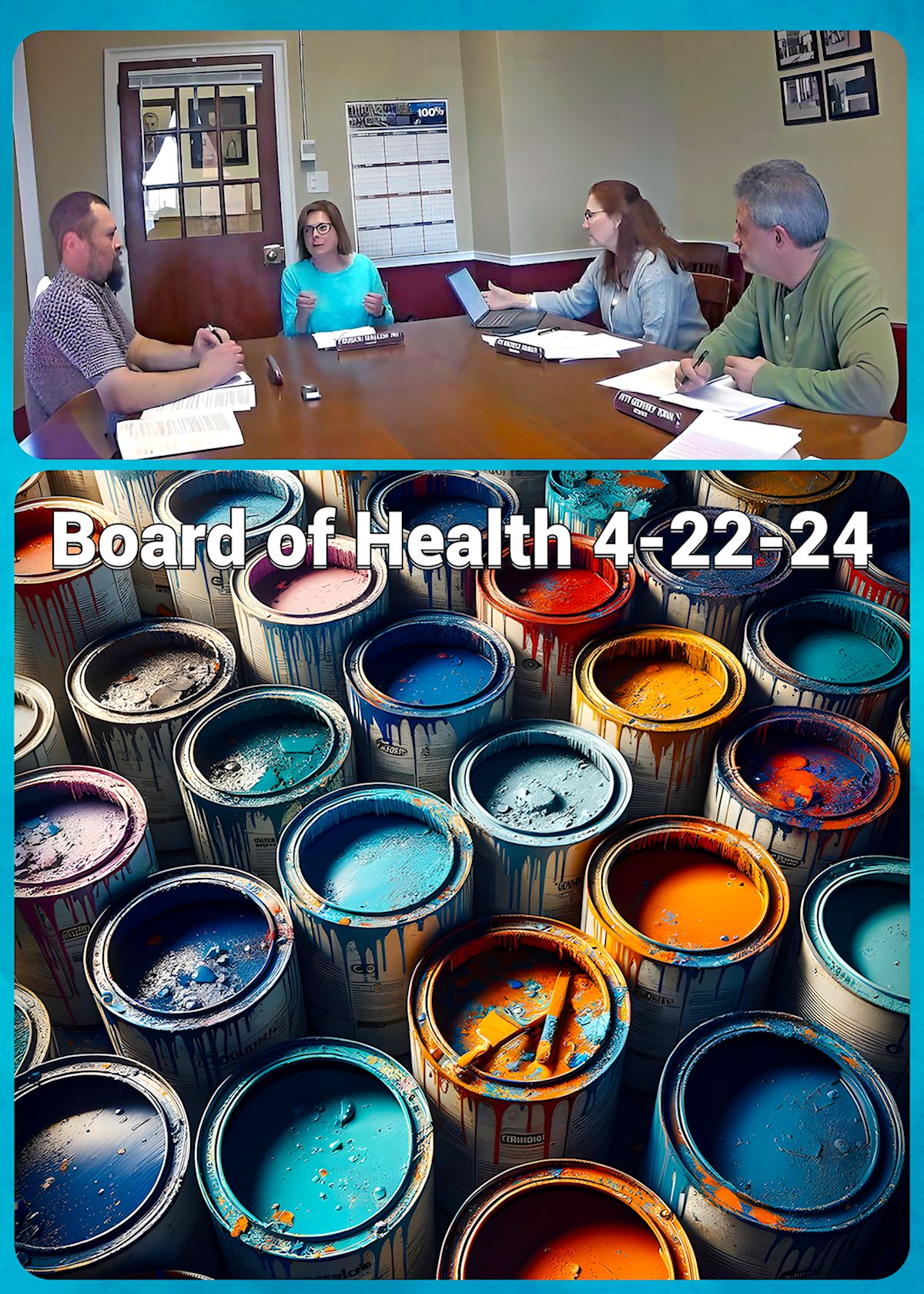Board of Health Receives Updates and Discusses Local Health Issues
Health Director Micah Blondeau updated the Gardner Board of Health on April 22, 2024. Board of Health consists of Susan Avalone, RN, Chair and members Michele C. Parker, MD and Attorney Geoffrey Tobia. Listen to the meeting on any device, CLICK PLAY.
The Gardner Health and Wellness Fair had hundreds of attendees with about 70 participating vendors. The Purple Paw Walk is taking place on Saturday April 27th.
Health Director Micah Blondeau stated that areas needing repair at the transfer station will cost more than expected. “Looks like it’s going to be a lot more than what I requested in the budget….And there’s actually one area that wasn’t included in the report to repair, but it is going to be a problem down the line.” The Keep Gardner Beautiful Trash Cleanup and Nip Hunt is May 4th “So they have a little area up there now with a container of their supplies, and we’re going to have an extra container delivered for any trash items that they find. We’re going to have a way to take care of that without causing any problems with the normal transfer operation.” Blondeau also stated that “We will be applying for some small grants to add some structures to the transfer station. They’re mainly for increasing recycling capacity.”
Housing and Nuisance complaints are coming in a a pretty increasing rate, “We’ve had 20 of those complaints since the last Board of Health meeting.” Blondeau had some specifics: “We do have some cases that are pretty difficult to resolve and aren’t really going away. Nobody specific is working on any particular repeat problems. We are working on that along with any kind of property that has a lot of junk and trash. So we’re going to start hitting those harder and trying to get more traction on those.“
The Health Department has a new food inspector and inspections will increase.” He’s still in the training process, but we’ve gone out and taken him on several food inspections. He’s been doing a lot of online training. Pretty soon we’re going to transition him to where he takes the lead on the inspection that we observe, and if that goes well, we’ll cut him loose and put him on his own routine. So we are actually currently inspecting food establishments on a minimal scale, which is twice a year, and we’re going to be moving towards more of a risk-based category. So every place will be inspected two, three, or four times a year, depending on past performance, population surge, complexity of menu, all that kind of stuff. So there will be some places that will be getting four or more inspections a year, depending on how they do, and we’ll adjust that as we move along.”
Regarding regulations on paint: “So the goal is that they can get more municipalities to support it. And we hope we can get more attention in the legislature, just because there’s so many bills they’re looking at. o they’re just looking to get more support for basically a program that’s going to charge a fee, $25 a piece, less than $1 a gallon, and then that money would be used to set up a system to recycle the paint or at least collect the paint and recycle what can be recycled and dispose of the rest kind of on a universal level, kind of like the topics we were talking about. They were at the Household Hazardous Waste Day last fall, I think.” It was explained further, ” So I know that there’s a communication here from here about recycling the paint right now with what it’s costing the municipality. So my understanding from reading it is that passed in this legislation, the municipality will have to have different types of recycling processes for the paint, and that’s going to be costly. And so by having that deposit or stewardship amount attached to it, increasing it when it’s at sale would supplement some of those costs.” By collecting paint and recycling it, other states have saved taxpayers money, “So you have a lot less trucking and everything, and you have a lot less, hopefully, disposal in landfills and places where it should be going. So they’re doing it in Maine, Vermont, New York, Connecticut, and Rhode Island, and it’s saving taxpayers nearly $300 million to date. So it saves the town a lot of money because they’re paying them to buy the paint and not paying it for the disposal.”

